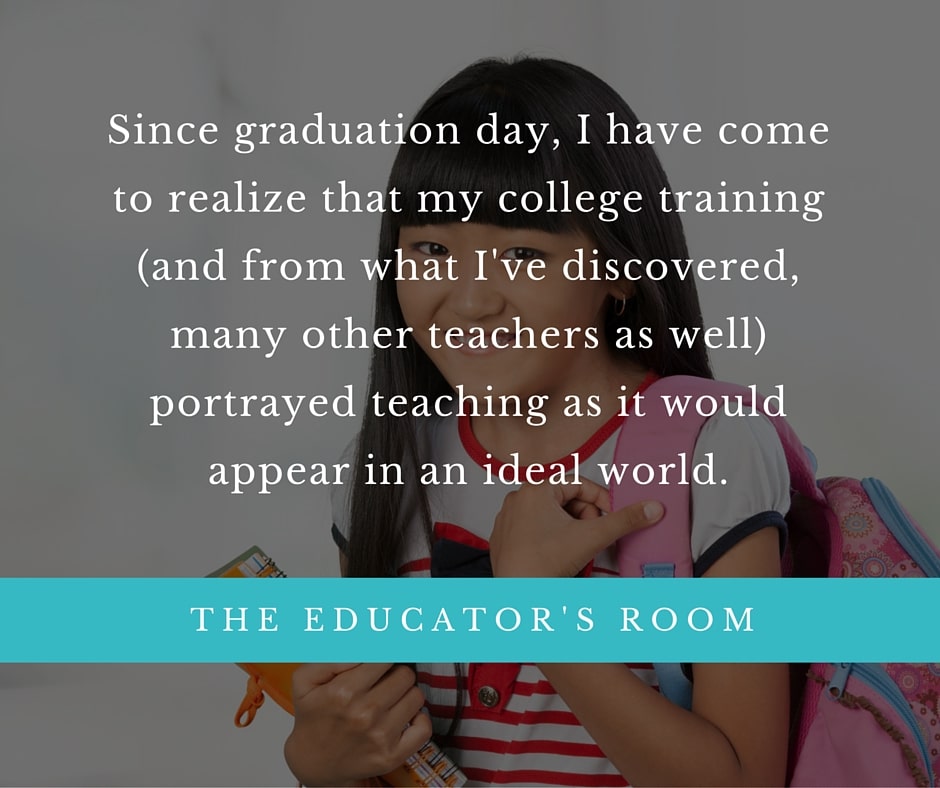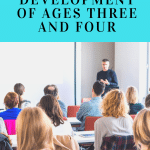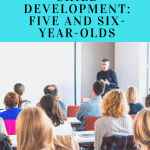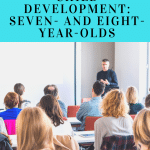By Eric Pederson
Teaching. A special blend of dedication, innovation, and passion with a healthy dose of thick skin is needed to succeed in what many consider to be the noblest profession of all. With the fate of so many young children hanging in the balance, it would seem an obvious decision to prepare our future educators as best we can for the trials and tribulations they will face upon first setting foot in the classroom. However, one quick glance into the room of any first year teacher will reveal one terribly disappointing fact: Regardless of the amount of experience, educators leave college largely unaware of what truly lies ahead of them.
Growing up I wanted nothing more than to be a Navy Fighter Pilot, but it seems as though life had other plans for me. For starters I was surrounded by educators. My entire family lived and breathed education. This wasn’t a recent development in the family tree either. Nearly every member of my family was involved in education in some way, shape, or form, extending all the way back to each of my grandparents. One of grandmothers taught kindergarten for nearly 40 years (teaching every one of her children and grandchildren in the process) while my grandfather taught high school American history for just as long. My other grandmother taught a variety of elementary grades before finishing out her career as a principal while her husband taught high school social studies and served as the president of the school board. With a family so brimming with educators, it seemed like my path in life was written long ago.
Although the handwriting was clearly written on the wall, I needed to come to the conclusion that I wanted to become a teacher on my own. After ruling out the Navy and pursuing a career in creative writing, I took a job coaching high school golf at the same high school where I graduated. Although I coached there for six years it only took me a week to determine that working with kids and having a positive impact on their lives was what I wanted to spend my life doing.
I immediately dropped my creative writing degree and enrolled in the education program at the local university. The next four years found me working as a private tutor for students with special needs, organizing afterschool activities at a school for low SES students, coaching golf, and even teaching driver’s education and behind the wheel. Unlike many of the other education students I attended college with, I submerged myself in education. I wanted to walk across that stage and into my first classroom knowing full well what to expect.
Unfortunately, no amount of experience or time spent listening to my professors lecture about the ins and outs of teaching was enough to prepare me for what truly lie before me. I quickly discovered that, despite my years of preparation, I was beyond ill-prepared.
For such an important and demanding career one would think that colleges would pull out all the stops to ensure that future teachers are provided with the most accurate depiction of teaching possible. However, with the teacher attrition rates skyrocketing past the 40% mark within the first five years, it’s not hard to believe that students aren’t leaving college with the whole picture.
I’ll be the first to admit that as I walked across that stage on graduation day I felt like I could tackle anything that teaching had to offer. I doubt I’m alone in the new teacher world when I admit that I thought I was going to be the one with all the answers and have the ability to “save them all.” But after spending two short years in the classroom I am starting to see just how little I actually knew what to expect when I set foot into that classroom for the first time. A bit frustrated and puzzled as to why my real-world experience aligned itself in a realm that was the polar opposite of the one I was trained in, I began to reflect a bit.
Although college is supposed to be the time in your life where you unravel the seams of your mind and let a wealth of knowledge come flooding in, it’s primarily a time where you need to be preparing yourself for what truly lies on the other side of that stage. And throughout my days as an undergraduate I thought my professors and cooperating teachers were doing just that. After all, these people were who had dedicated their careers to education, some of whom had spent decades in the classroom. What could they possibly have to hide? As it turns out… a lot.
Since graduation day I have come to realize that my college training (and from what I’ve discovered, many other teachers as well) portrayed teaching as it would appear in an ideal world. One where students actually enjoyed coming to school, budgets weren’t being cut, class sizes where manageable, parents helped their kids with homework and showed up for parent teacher conferences, behavior wasn’t an issue, you had enough time in the day to get all your planning done, districts valued teacher input on policy changes, and administration actually backed you in your decisions.
For a brand new teacher right out of the box, this brick wall disguised as a reality check came as an overwhelming surprise and actually had some rather adverse effects on my future as an educator.
Therefore, in an attempt to pull back the curtain a bit on what it’s like to be a new teacher, I want to share my experiences over the course of next few articles; both good and bad. At times I may appear candid and blunt about what truly goes on at the front of that classroom and just what exactly causes teachers to burn out so quickly and how it can be avoided, if at all possible. However, focusing on only the negative would be counterproductive to the cause. After all, we’re a collection of teachers attempting to provide insight into our careers. So, I also want to share some of those more rewarding moments that just like all the negative stuff, no-one could have ever prepared me for.







I am totally interested in following these stories … I'd be curious to know are you coming from an angle of being at a private or public school? Demographics? I'm sure you won't be giving too many specifics tho 🙂
Thanks for the reply and the expressed interest in this column! I'll divulge a bit of my personal education in future articles, Although a majority of personal school was private in nature, my professional teaching experience comes from a large public k-8 school with a wide demographic of kids , a majority of whom are Hispanic.
I can’t wait to read these stories. I am bookmarking this now.
Eric,
I have read both your articles with great interest. As a public school administrator, I can say that many educators understand that family poverty is the key variable in many students' "performance" whether at school or some other environment. I believe the social policies of the US have dropped the ball on alleviating poverty, thereby making schools (in high poverty areas) fail! If we consider that most students from wealthier and middle class zip codes do well, we only are in an education crisis where there is high poverty. I would submit that the crisis is not with the schools, or with the hard working teachers in those schools, but with the social environment that surrounds that school. Make no mistake, it is still a crisis, but one that goes beyond the classroom.
Great post, Eric. I wonder though- is it really possible to prepare a college student for working in the "real world" of education?Great..college didn't prepare educators, but here we are. We can't keep saying "college didn't prepare us..oh no!" I am in my second year and have been asked many times "what was your biggest shock about becoming a teacher?" My reply for many months was that I felt college did not prepare me for my career. However, I now often wonder just how much more my professors could have prepared me for my future job. How do you prepare someone to enter into a school where your free/reduced lunch is 92%, most of the students are in ELL, it is odd if your parents are here legally or if your parents are not in jail, and only 5 are performing "on grade level…barely? What can a teacher do to be ready for that before it happens? If our professors didn't keep secrets about what a real classroom is like then how many college students would be graduating with a teacher degree? Would we believe their stories or their struggles and hardships in the classroom? Would we really understand? I don't have the answer. If I did, I would be working at a college helping prepare the United States with well prepared college graduates.
22 years of teaching and I still feel that my education did not prepare me for my career. Each year I teach I learn a few more new "things". I believe experience on the job is the best education.
It's possible teacher training leaves us vulnerable so the districts and school sites can mold teachers in their own image.